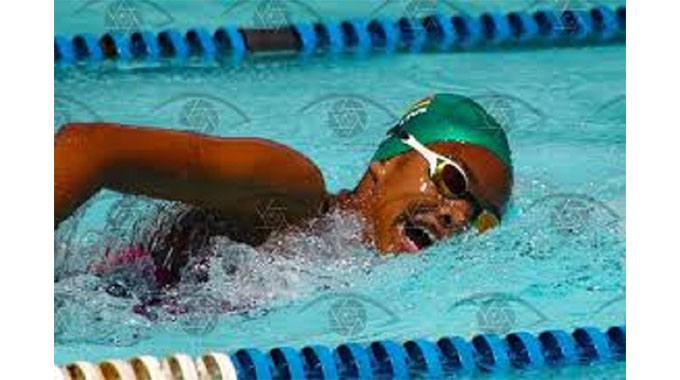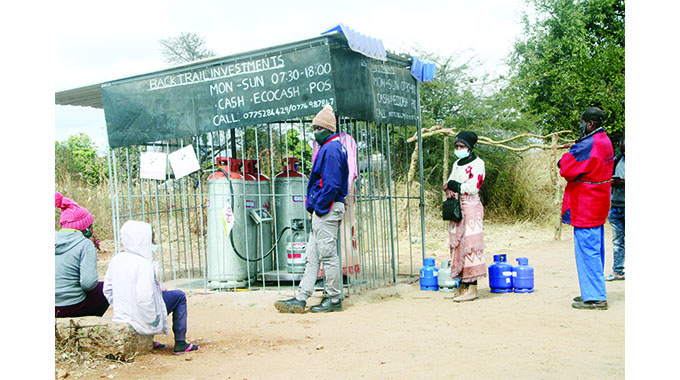COMMENT: Take advantage of Katai’s history making to recruit more black swimmers

TEENAGE swimming sensation Donata Katai fired warning shots in her Olympic Games debut by winning her heat in the 100m backstroke at the Tokyo Aquatics Centre in Japan yesterday.
Despite the agony of failing to advance to the semi-finals, the 17-year-old Gateway High School learner made history by becoming the first black swimmer to represent Zimbabwe in the Olympic Games.
Katai posted a personal best time of 1 minute 02.73 seconds, bettering the 1 minute 5.6 seconds she recorded in the same distance at the Junior National Swimming Championships in Durban, South Africa, as a 15-year-old in 2019.
However, Katai’s time was inferior to other swimmers, as she was placed 34th overall after completion of all heats. Only the top 16 qualified for the semi-finals.
Although she fell by the wayside, Katai showed her intent by shaving off a portion of her previous junior national record, which she set by breaking current Youth, Sport, Arts and Recreation Minister Kirsty Coventry’s 1998 record.
Katai has the potential to haul Olympic medals in future Games if she continues to pursue the sport, as time is on her side.
What’s encouraging is that there are similarities between Katai and Minister Coventry, who happens to be Africa’s most decorated Olympian with seven Games’ medals comprising four silver, two gold and one bronze.
Katai is only 17 and Minister Coventry was turning 17 when she made her maiden Olympics appearance in the 2000 Sydney Games.
Just like Katai, Minister Coventry didn’t win a medal, but she returned four years later at the Athens Games where she went on to claim a gold, silver and bronze to mark the beginning of her journey to become Africa’s leading Olympian.
Minister Coventry retained her 200m backstroke Olympic gold medal in the Beijing Games in 2008 and added three silver medals.
The minister’s pattern should be of great encouragement and inspiration to Katai barring any injuries.
Tokyo was going to be too early for her to step onto the Olympic podium, but her debut probably marks a great breakthrough.
She has gained some form of experience and knows what’s required to compete against the greatest swimmers in the world for the most prestigious international sporting hardware.
Katai did well to win her heat, but she now knows that winning alone is not enough, as the international field that competes in the Games is packed with swimming titans.
But that she emerged 34th overall in the heats is in itself an achievement for Katai, who has been swimming competitively since the age of six.
She faced the toughest international competition to date in her career and what she needs now is lots of encouragement and support from the Government and Zimbabwe Olympic Committee, as she has shown real potential to add to the country’s overall Olympic Games medal haul of eight by Minister Coventry and the hockey Golden Girls in 1980.
Her Tokyo performance showed glimpses of a potential to succeed Minister Coventry as Zimbabwe’s most successful swimmer and a decorated Olympian.
Besides Minister Coventry, Katai can also look at American Simone Manuel, who became the first black female swimmer to win an Olympic medal when she scooped gold in the 100m freestyle in her first appearance at the Rio Games in Brazil.
The 25-year-old Manuel is back in Tokyo for her second Olympics after overcoming an “overtraining syndrome” that she was diagnosed with earlier this year.
There is also Alice Dearing, who became the first black female swimmer to represent Britain in the Olympics. Dearing will compete in the 10km open water marathon.
Katai can hold her head high because she has done her part in opening an avenue for young black girls that doubted their abilities in the swimming pool despite doing quite well at school galas.
There are a lot of young black girls that give up swimming for different reasons, but Katai has shown that it is possible to compete in the Olympics as a schoolgirl.
The Zimbabwe Swimming Board must also take advantage of Katai’s history making to recruit more black swimmers to make the sport more inclusive.
The board needs to come up with a retention programme to save the sport.
If Katai can represent the country in the Olympics while training and swimming in Harare pools, the board should do more to ensure top swimmers are produced locally instead of depending on those on overseas scholarships.
Katai has demonstrated that if the right methods are adopted, correct support given and adequate resources availed, Zimbabwe is capable of nurturing its abundant talent in every sport locally to complement those based abroad.











Comments